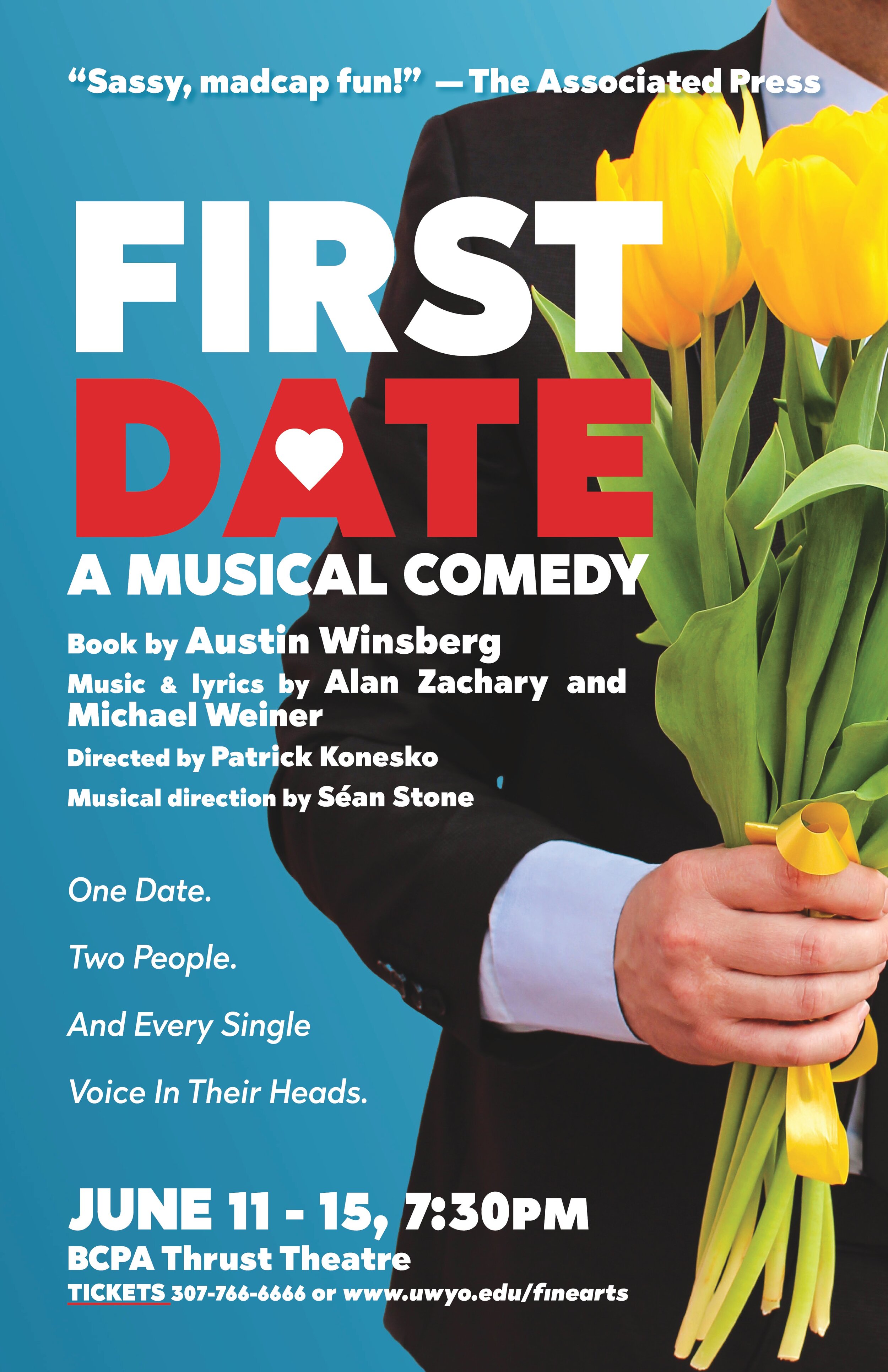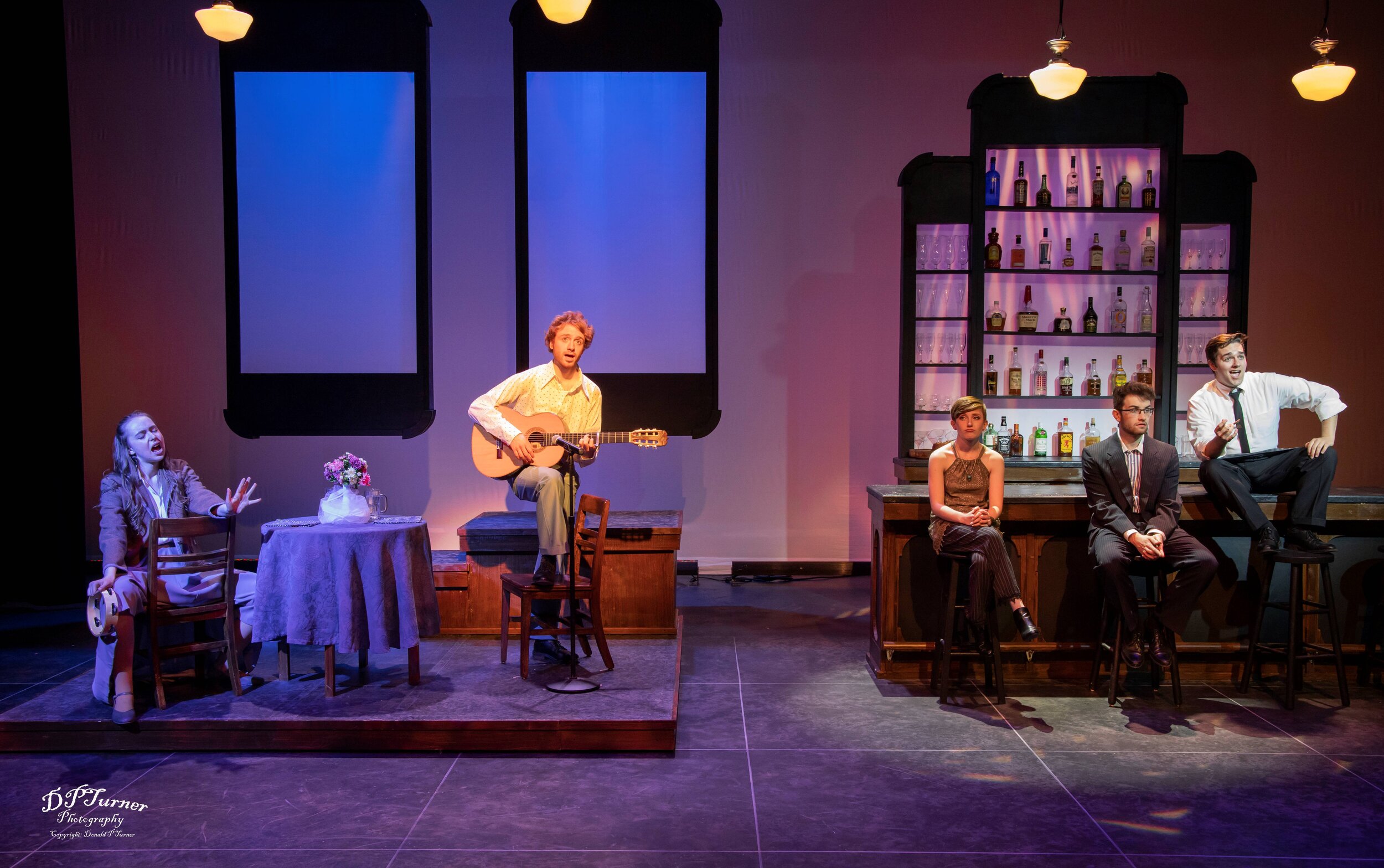
“Because I think it’s important to be out there. To keep your options open. And I guess I just keep ‘hoping each time that my next leap will be the leap home …’”
— Casey

"I'd Order Love"

"Safer"

The Waiter joins the fun, making a sock puppet child to taunt Aaron.

"The Awkward Pause"

"The Girl for You"

"The Check!"
First Date, by Austin Winsberg, Alan Zachary, and Michael Weiner
Director: Patrick Konesko
Musical Direction & Accompaniment: Seán Warren Stone
Assistant Director: Bailey Patterson
Scenic Design: Ron Steger
Costume Design: Darrell Wagner
Lighting/Sound Design: Jason Banks
Audio Engineer: Don Turner
Production Stage Manager: Anna Mae Whatley
Photography: Don Turner/DP Turner Photography
Approach:
First Date was my first musical, we only had a week and a half to rehearse, and we did not have the resources for a choreographer, so the musical director and I worked closely to pick a piece that we thought we could execute given our limitations, and my inexperience. Ultimately, we selected this musical for its small cast size, the relevant ages/situations/world views of the characters, and the relatively straight forward design requirements. We wanted something light, fun, and accessible for summer theatre, but it also needed to be a piece that could challenge our performers and speak directly to audiences about their relationships and perspectives on the world. First Date meets those goals by mashing up the tropes and characters that audiences expect out of a blind date story to offer an experience that is both parody and love letter to traditional romance narratives.
The format of the musical takes us back and forth between an ongoing first date and the memories, experiences, and fantasies plaguing each of the main characters. This structure offers perspective into the mental knots that sometimes get in between us and genuine connection. The other thematic element that was interesting to me was the way that the play deals with the types of snap judgments we make about those around us. I think we have a tendency to expect perfection from others while simultaneously recognizing and forgiving our own failings. The difference, of course, is context—we know the circumstances that contributed to our failures and so recognize the extent to which some things are out of our hands regardless of good intentions. This plays uses lighthearted steps into memory and fantasy as a way of showing us some of that context and, by extension, asking us to have a bit more compassion for those around us.